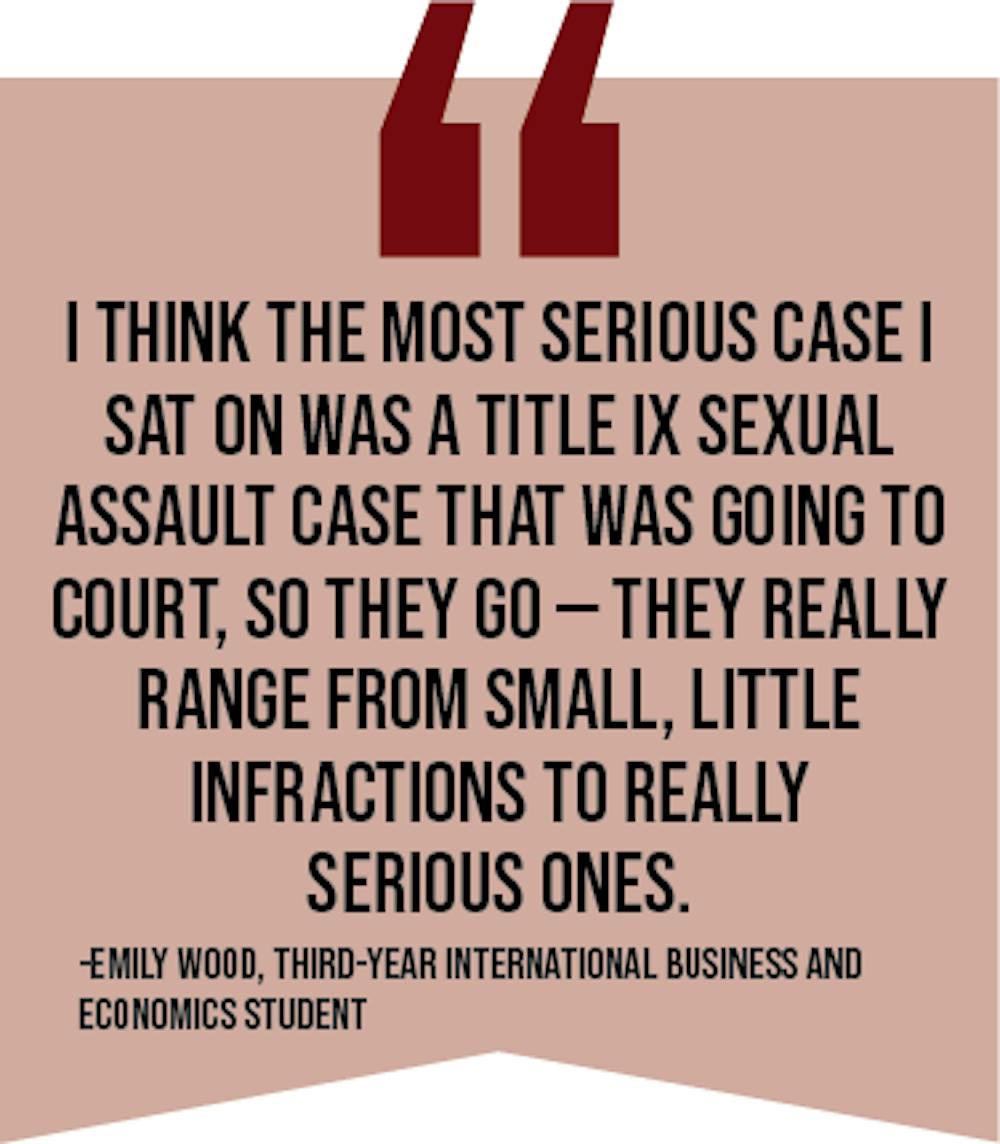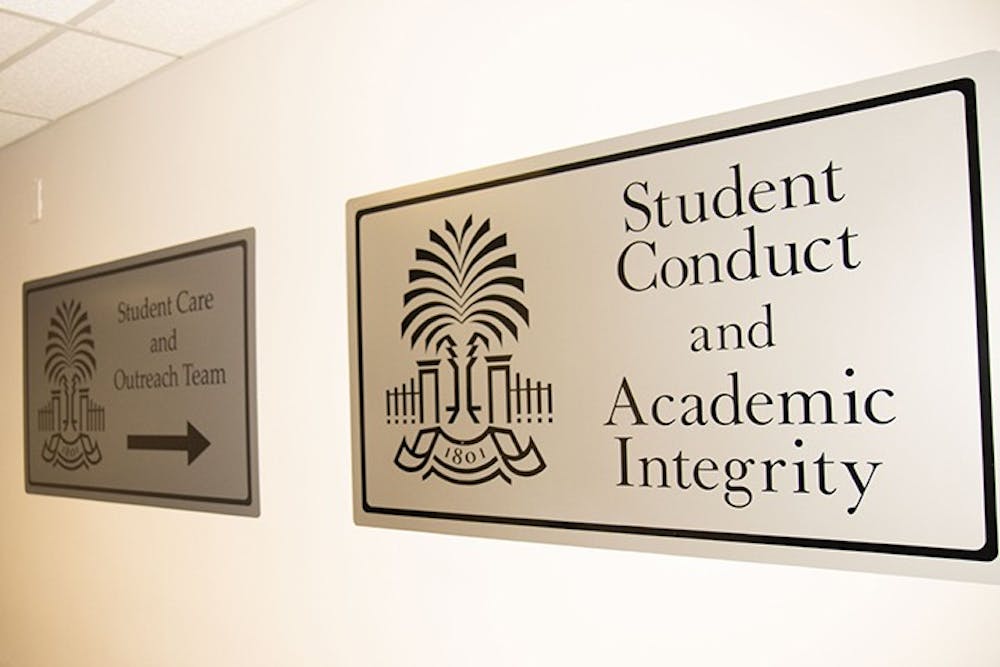The Carolina Judicial Council will no longer sit in on Title IX hearings after University President Bob Caslen announced reforms to the university's Title IX department in an email to students, faculty and staff on March 14.
The Carolina Judicial Council (CJC) is a learning opportunity that allows students to be members of a student jury for judicial council hearings at USC, according to the university website.
Title IX protects against discrimination on the basis of sex in education.
Third-year international business and economics student Emily Wood has sat on about three Title IX hearings during her time on the CJC.
Wood said the Title IX cases the CJC saw ranged in severity.

"I think the most serious case I sat on was a Title IX sexual assault case that was going to court, so they go — they really range from small, little infractions to really serious ones," Wood said.
The council is currently made up of roughly 55 members, including students of every year, according to Director of Student Conduct Maureen Grewe.
Students interested in joining must go through a competitive recruitment process in which the active members decide who joins. Students then go through training.
During this intensive training, which lasts two to three days, the members review the university code of conduct, among other things, according to Wood.
"Then we'll practice. They'll give us fake cases that happened, or may have happened in the past and we'll practice about why we think the student might be responsible, why they maybe are not responsible," Wood said.
Third-year management and marketing student Cecilia Tatro said training for case hearings is multifaceted.
"There's multiple parts of the training," Tatro said. "We have to be trained on how to ask appropriate questions because at the end of the day, we want to come in with an open mind because that's what the student deserves."
Tatro said each hearing ends with writing a rationale, a record of the council's decision, that members also learn how to do in training. This gives the CJC a record to refer back to, according to Tatro.
Wood also mentioned that to serve on Title IX cases, the members must meet additional requirements.
"First, you have to be on the council for, I want to say at least a year, and then you also have to go through a whole other round of interviewing on how to be an unbiased council member and how to do trauma-informed interviewing, so talking to people who have experienced trauma without re-triggering them," Wood said.
In addition to the CJC members, faculty and staff also must go through training through the Office of Student Conduct and Academic Integrity, Grewe said.
Wood said the majority of the group's work is to ensure that students are following the Carolina Creed and conduct codes.
"The main part of our responsibility is sitting on hearings that relate to sort of conduct violations or academic integrity violations," Wood said. "We're always trying to make sure that our sanctions represent educational purposes. We're not trying to punish anyone. We're just trying to make sure they understand why."
The Office of Student Conduct and Academic Integrity oversees the CJC.

